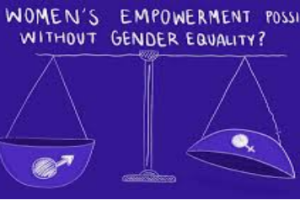
Amidst the digital revolution and modern media technologies, traditional media is facing significant challenges. The survival of conventional print media hinges on adopting new and innovative approaches.
While readership declines are notable in the Western world, there are positive trends elsewhere. The 2022 World Press Trends Survey by the World Association of Newspapers (WAN) indicates increasing print circulation in Asia, Latin America, and Africa.
Since the lifting of censorship in the early 1990s and the subsequent media reforms, Ethiopia’s print media has expanded significantly. Newspapers have become relatively active in agenda-setting, now given more freedom to operate. However, their limited number and concentration in Addis Ababa hinder their vibrancy and competition with digital platforms.
Addis Ababa University Journalism Associate Professor Teshager Shiferaw (PhD) highlighted the political, financial, and technological constraints facing print media in Ethiopia and Africa. Despite these challenges, some newspapers have endured. Teshager believes that dedicated journalists can lead the way in ensuring print media’s survival. “The key question is whether we will adapt to remain relevant,” he said.
Teshager also advocated for the coexistence of multiple media platforms. Print and online media can support each other in promoting development and democratic processes, contributing to an engaged citizenry and true media pluralism.
Free speech and media are no longer solely the domain of journalists; they are rights for all people. Combining traditional and new media can boost the fight for freedom of expression and access to information globally, Teshager remarked.

Veteran journalist and media consultant Eshetu Geletu emphasized that print journalists must adapt and innovate to stay relevant, just as they did with the advent of television and radio. “The biggest danger to newspapers is losing public support,” he stated. Enhancing professionalism, investigative skills, and ethical commitment among journalists is crucial to maintaining credibility and community connections.
Eshetu suggested cross-border collaboration in investigative reporting and publishing in local languages as strategies for newspapers to remain competitive. Additionally, providing SMS pages to connect people and government can be a successful innovation for local newspapers.
Teshager noted that in a fast-paced media landscape, journalists must adapt their skills for both print and online platforms. Committed journalists have always risen to the challenge of a deadline-driven environment.
The Inability to distinguish between hate speech and free speech on social media can lead to calls for government regulation of online expression. Media literacy campaigns are essential to help people make the most of online resources.
Additionally, the growing practice of citizen journalism is challenging conventional media, as the public tends to get information from social platforms, which can lead to misinformation and conflicts. Due attention is needed to enhance the quality and credibility of conventional media to deter society’s growing dependence on rumors and fake news.
Ultimately, there will be a demand for reliable news and information, and newspapers must be ready to meet this need, both experts expressed conviction.
The basis of any media is the political economy of the country it operates in, and Ethiopia’s rapid economic growth has transformed the country’s print outlets toward commercialization, as broadcasters receive large-scale advertisements and resources for their content.
Experts said that universities and other higher learning institutions must nurture professionally-equipped journalists. The government’s efforts and media’s role are also crucial in enhancing public media literacy to create a critical audience.
BY BILAL DERSO
THE ETHIOPIAN HERALD SATURDAY 20 JULY 2024





